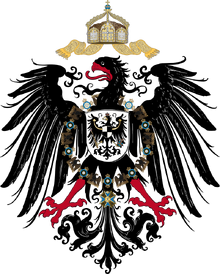
Kaiserism (Dundorfian: Kaiserismus), also known as Wilhelmism (Dundorfian: Wilhelmismus), naming it after the Kaiser Wilhelm I of the modern Dundorfian Reich or as defined by Xaver von Kielholz, Prince of Kielholz in 4188 as a leading member of the Free Conservative Party in Dundorf as National Monarchism (Dundorfian: Nationale Monarchismus).
Kaiserism, better known as National Monarchism, is defined as a National Socialism without the rhetoric of violence and the application of the institution of the Kaiser as the leader. The Prince of Kielholz was the leading theorist of the movement. Political parties such as the Social Nationalist Party in Dorvik, or the modern Dorvish Workers' Party have aligned themselves with Kaiserist thinking without fully proscribing themselves as Kaiserist political parties or National Monarchist parties. In recent modern Dundorf, the Party of the Dundorfian Middle Class (Dundorfian: Partei des dundorfischen Mittelstandes) and the Dundorfian National People's Party (Dundorfian: Dundorfische Nationale Volkspartei) align themselves with Kaiserist politics.
The largest and most prominent Kaiserist organization is the Volksdundorfische Cultural Association which itself is both Kaiserist and Pan-Dundorfian, which are often the same. The VDKV as it is commonly known, is an international association of Reichsdundorfische, Volksdundorfische and Auslanddundorfische who come together united through a common ethnic bond. Traditionally the VDKV has served the right-wing, but in the modern era the VDKV has both right-wing and center-left tendencies, however they do traditionally have a supportive place on the right-side or syncretic form of politics.
Kaiserism is the belief that the Dundorfian people should be united underneath the Emperor (Dundorfian: Kaiser) regardless of political ideology. Kaiserism isn't inherently autocratic, leading theorist and supporters state that Kaiserism is a third-way ideology that focuses on the desire of the people to have a uniting figure to look up to. It widely contrasts itself with National Socialism and it's concept of the Führer in that the Kaiser is revolving and can change, the concept of National Socialism is often dogmatic and focused around one strong, central figure, whereas the Kaiser has established succession and can better relate and change to the will of the people.
Political parties aligned with Kaiserism
- Social Nationalist Party (Dorvik)
- Free Conservative Party (Dundorf) - First to espouse such views and lead primarily by leading political theorist Xaver von Kielholz.
- All-Dorvish League (Dorvik)
- Volksdundorfische Cultural Association - Does not function as a political party but as a mass political organization.
